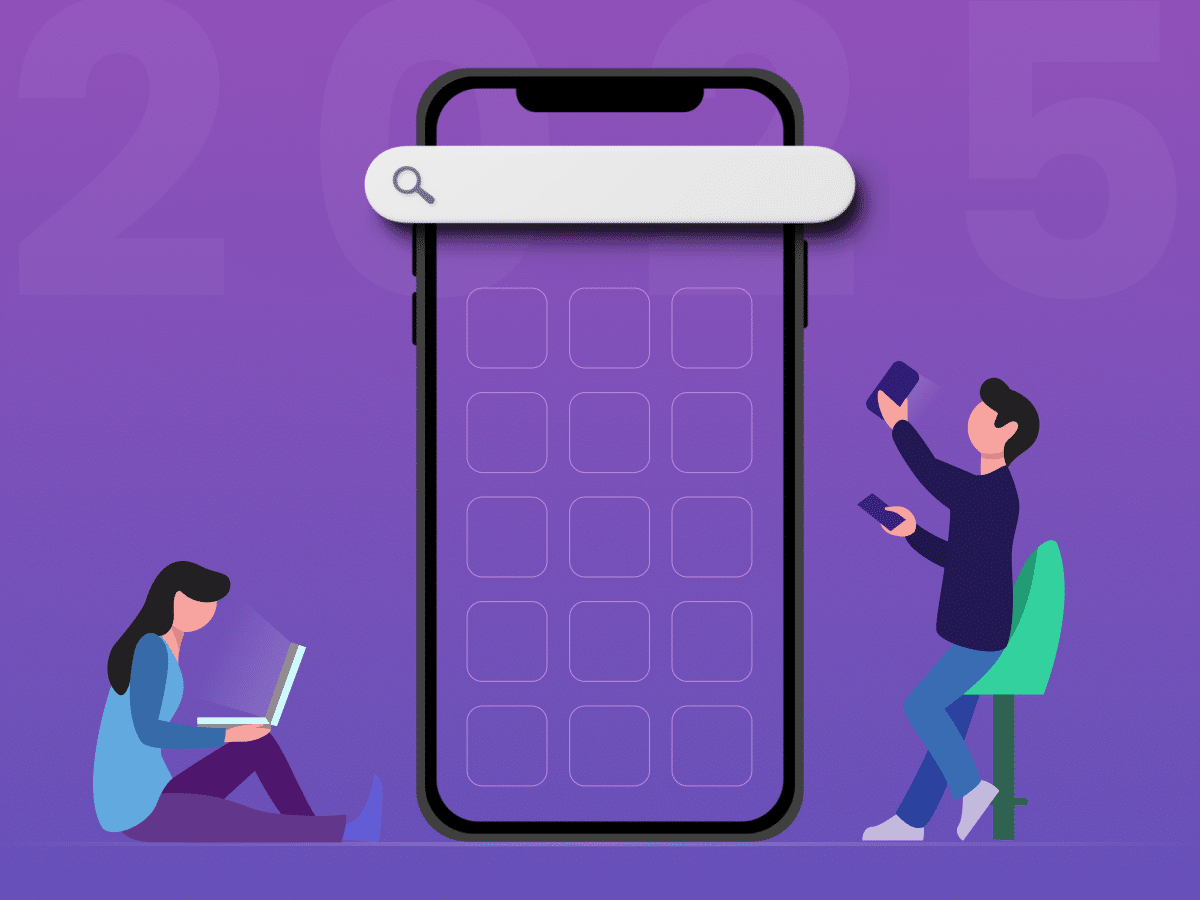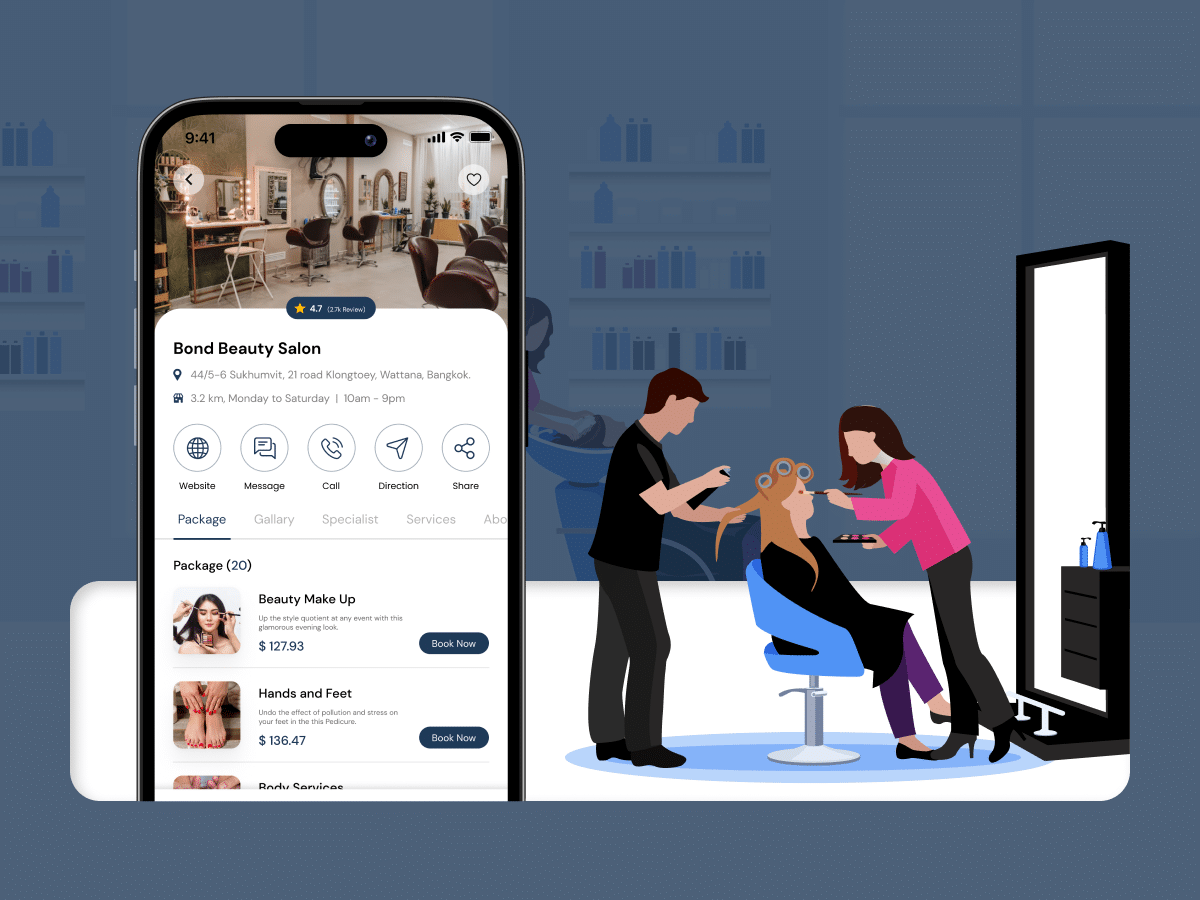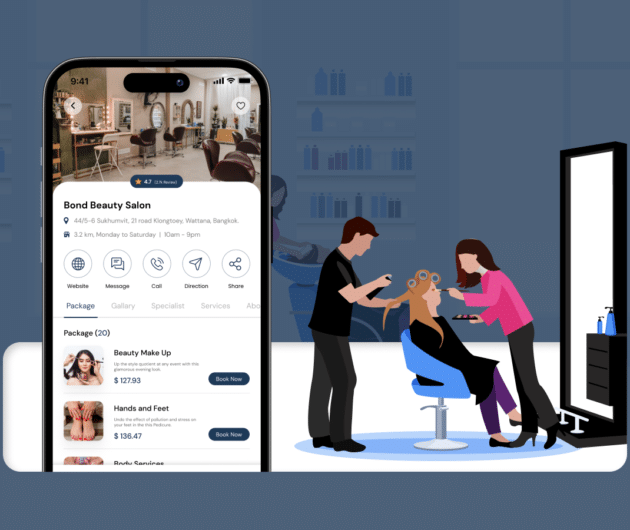Why Should You Go For Cross-Platform to Develop Mobile App?

-
Ankit Patel
- June 19, 2020
- 4 min read
People are now getting mobile. Adults and kids alike are all hooked at using their smartphones every single day for communication and entertainment. And in these trying times when the world is battling against the deadly pandemic, smartphones have become a critical tool people use for education and work.
The rule of thumb when it comes to marketing and doing business is to go where your prospective customers go. You need to meet them in the right place and at the right time. In today’s technologically advanced era, you can mostly reach them on mobile devices. This is why ensuring that your company is visible on these mobile devices is no longer a luxury but a must. Not getting mobile will only cause your brand to miss great business opportunities. You surely don’t want to be left behind by your competitors, right?
The best way to stay up of the competition and to leap a step ahead from the rest in your industry is to develop a mobile app – something that does not only represent your brand but also something interesting, convenient, accessible, and engaging that tech-savvy mobile users can use and enjoy on the go. Not only can this make your brand stand out, but you can also use mobile app development as an excellent marketing strategy that allows you a wider reach, improved visibility, and a better way of spreading the word about your business.
But here’s a catch! The mobile devices market is getting insanely diverse nowaday. Dozens of new tablets, smartphones, and other mobile devices that run on different operating systems such as Windows Mobile, iOS, and Android are being introduced and released on the market every month. Older mobile devices are being replaced by newer, more innovative, and better models. This device and platform diversity that dominates the mobile landscape has made it more difficult for modern businesses and developers to decide on which particular type of mobile app to develop.
Turns out, the best solution to this challenge is to opt for cross-platform mobile development. But why do modern business and mobile app developers should opt for cross-platform? Let us talk more about it below.
Why opt for cross-platform mobile app development?
The concept of cross-platform mobile app development is widely known and embraced by mobile app developers and modern businesses for many reasons. And some of the most common reasons are:
- Code Reusability
- Reduced Developmental Costs
- Rapid App Development
- Uniform App Experience
- Easier Implementation
- Availability of Better Plugins
- Wider Audience Reach
Code Reusability
Before the concept of cross-platform mobile app development has taken off, one of the major challenges that mobile app developers have to go through is to decide which type of mobile app to develop. Should they develop an app that supports Amazon Kindle, Blackberry, Android gadgets, Windows Phone, Tabs, or iPads? How can they be able to reach a wider target market considering the diversity of mobile platforms, operating systems, and versions? The best option then was to develop a mobile app for each. But developing a mobile app for a specific platform, operating system, or version requires writing fresh, unique, and separate codes.
With cross-platform mobile app development, however, you can consider this challenge a thing of the past. By implementing cross-platform mobile app development, mobile app developers no longer have to write unique coders for different platforms.
Instead of writing multiple codes, the mobile app developer can write a single code once and then employ it across all operating systems and platforms on which the app will be used. Sometimes, the code needs to be customized before it can be reused, though. This does not only allow faster implementation and development, but it also eliminates drudgery and the need to do repetitive tasks.
Reduced Developmental Costs
Despite knowing the benefits of running mobile apps, many businesses still feel apprehensive about investing in mobile app development primarily because of the high cost. Developing a mobile app is quite expensive. And if you were to develop multiple apps for different platforms, you would need to expand your budget. Unfortunately, not all companies have enough resources for multiple application development.
Since cross-platform mobile app development only requires writing codes once and simply customizing them as needed to ensure compatibility on various mobile operating systems, the development costs are kept at a minimum. Plus, the developer only needs to write unit tests once for the common code, thus, helping businesses save more.
Rapid App Development
Developing separate mobile apps for each platform is not only expensive but is also time-consuming. With cross-platform mobile app development, however, you can be able to speed up the pace of app development.
The cross-platform approach is less time consuming than the traditional approach. Instead of rewriting the code from scratch and doing repetitive tasks all over again every time, developers can simply customize and reuse the common code and use it across multiple platforms. This does not only mean enabling the app developer to deliver the finished product at a lesser time-frame but also allowing your mobile app to get to the market and reaching your target audience much faster.
Uniform App Experience
Consistency and uniformity play a critical role in ensuring user experience. Switching from one device or platform to another and not getting a similar app experience every time can easily turn off your users. Thus, you need an app that offers similar experience irrespective of the platform the users are active on. And cross-platform mobile app development can make this happen.
Easier Implementation
Implementation of changes and syncing updates across all mobile devices is made easier for app developers when using the cross-platform approach. Thanks to technologies like Appcelerator and PhoneGap for making this happen. Appcelerator, for instance, allows the app developer to easily write codes in HTML5 and convert or translate the same codes to make them compatible with different platforms.
Availability of Better Plugins
The majority of cross-platform app development frameworks are open source and are supported with a myriad of amazing plugins that offer different functions. By leveraging the plugin libraries, you can be able to customize your mobile app, integrate better plugins, and add more features to make it stand out from the rest.
Wider Audience Reach
Another challenge businesses face when planning to develop a mobile app is deciding what mobile app to develop and determining which platform can help them reach a wider audience. If they want to reach a wider audience and to cater to users from different platforms, they need to develop multiple mobile apps.
With cross-platform mobile app development, this is no longer a challenge but an option. Cross-platform mobile app development allows mobile apps to work seamlessly on different platforms without creating multiple apps. Instead of developing apps for one platform at a time, businesses can now use a single mobile app and get access to thousands of users on BlackBerry, Windows Phone, iOS, and Android at once. This means, giving them the opportunity to reach a wider and larger audience simultaneously, thus boosting their app’s visibility on multiple app stores and improving its revenue-generating ability.
You may also like

How to Choose the Right Mobile App Development Company
-
Ankit Patel
Imagine this: you’ve got a brilliant app idea that could revolutionize your business, take it to new heights, and transform your entire customer experience. But without the right team to… Read More

How Much Does it Cost to Build a Salon Booking App like Fresha?
-
Ankit Patel
We all have witnessed the buzz in the world of beauty & wellness, and it’s booming every day thanks to the fast-paced and stressful lifestyle. In an era where time… Read More

A Complete Guide to Hotel Booking App Development With Cost
-
Ankit Patel
Whether it’s a corporate business trip or a relaxing vacation with friends, finding the right hotel at the right time and a seamless hotel booking experience is not a luxury… Read More





